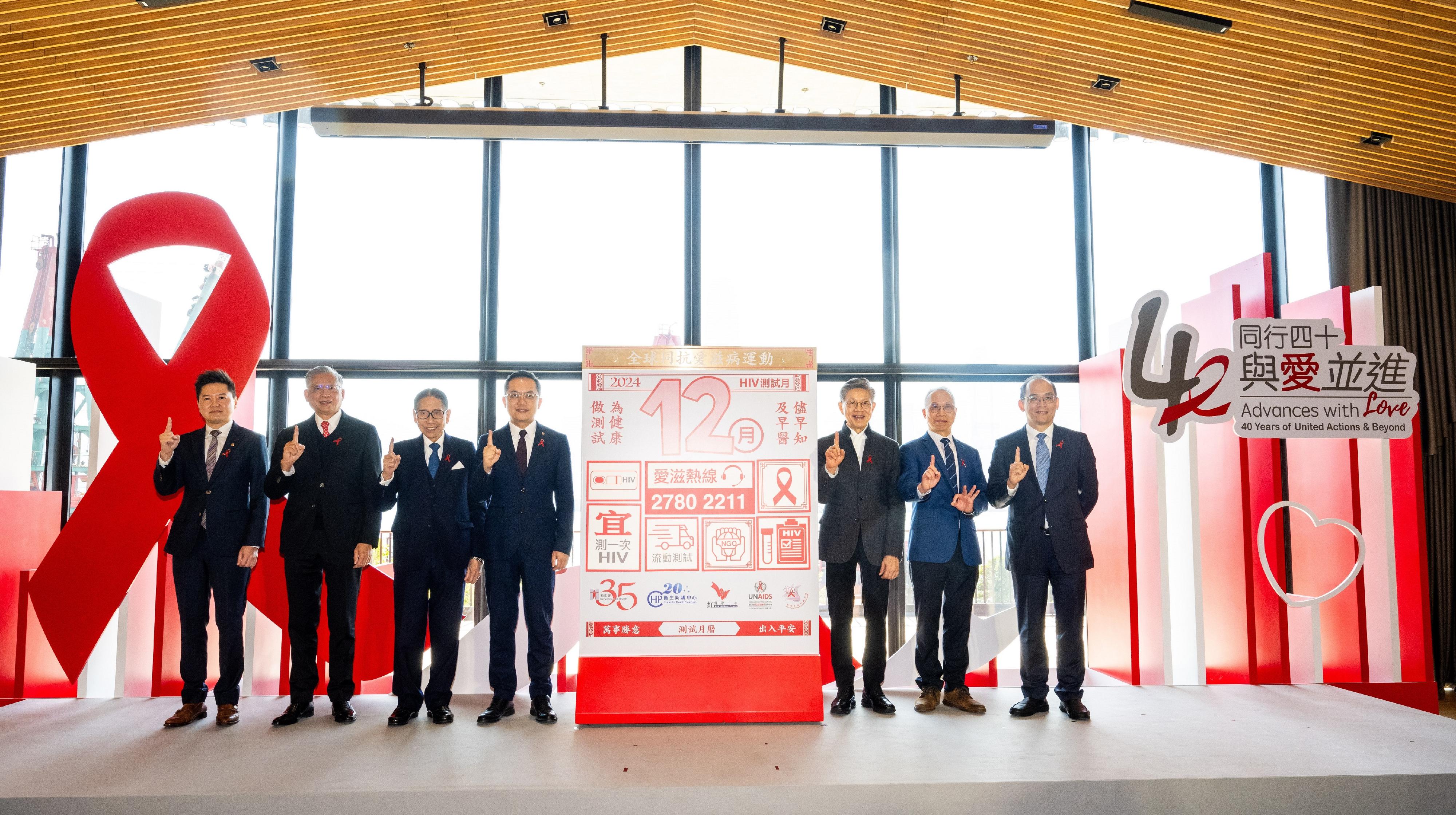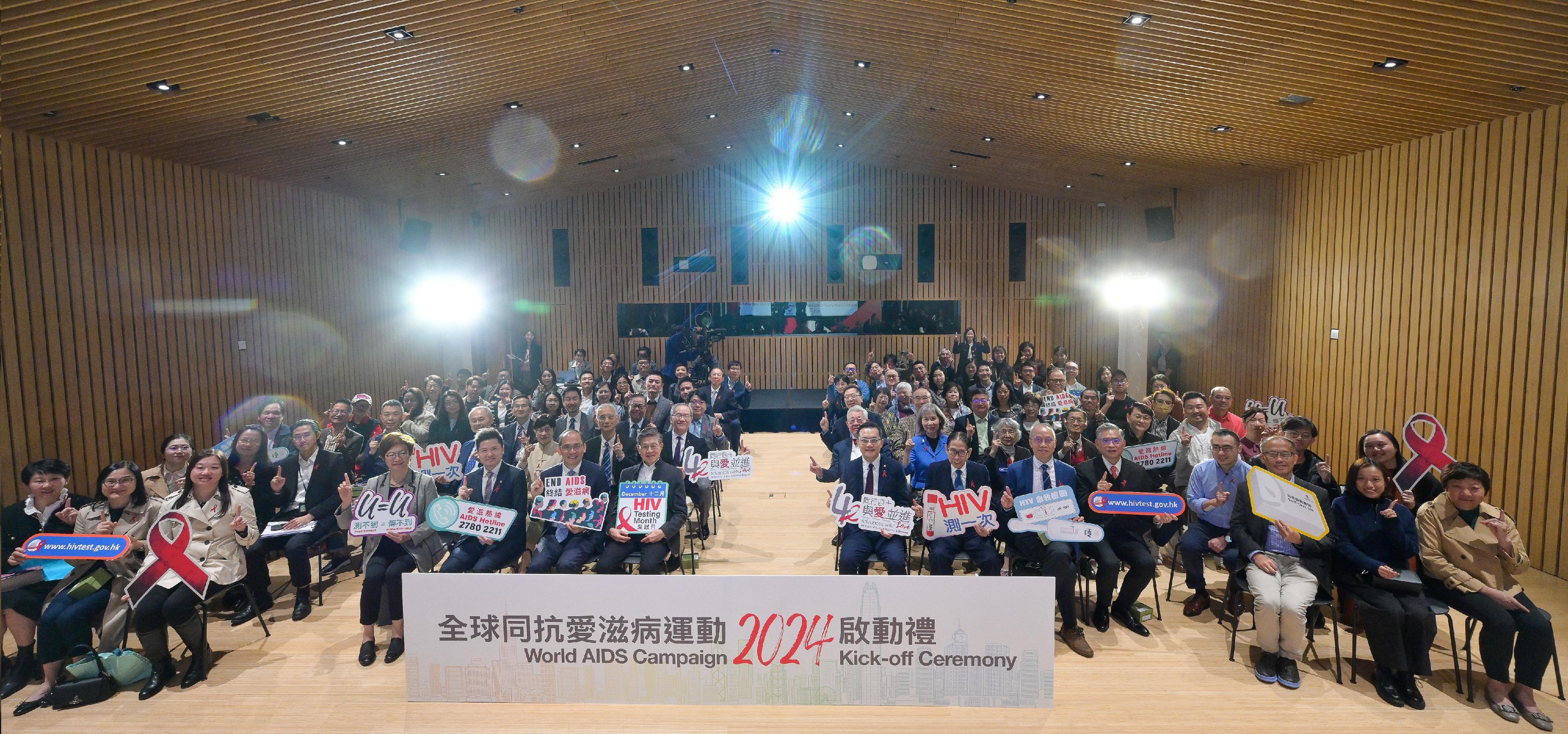The Office of the Communications Authority (OFCA) announced the results of 5G Campus Application Competition 2024 at the Final Round Assessment cum Award Presentation Ceremony of the Competition today (November 30). The Director-General of Communications, Mr Chaucer Leung, together with other guests, presented the awards to the winning teams.
Addressing the award presentation ceremony, Mr Leung said, "I am very delighted to see that the final entries are rich and diversified in content, covering a wide range of innovative applications of the fifth generation (5G) mobile communications and artificial intelligence (AI) technologies on various aspects while achieving the objectives set for the Competition, which included enriching campus life, enhancing learning experience, optimising the use of teaching resources, improving facilities and the environment on campus and in the neighbouring community as well as realising smart living. The submissions fully demonstrate the innovative ideas of the participating teams in the applications of 5G and AI technologies as well as their capabilities to bring the ideas into practice.
"I believe that the knowledge and experience the students have gained from participating in the Competition will continue to be applicable to their learning and future development. By fully unleashing their creativity, collaboration skills and problem-solving techniques as well as through continuous learning and practising, the students will be able to make remarkable achievements in the field of innovative technology in the future and make contribution to our country and society," he added.
The list of the winning teams is as follows:
| Award |
Team |
Project |
| Champion |
Cumberland Presbyterian Church Yao Dao Secondary School |
Campus Intelligent Patrol and Duty Device |
| First Runner-up |
CCC Chuen Yuen College |
AI-Powered 5G Recycling Bins: A Sustainable Revolution |
| Second Runner-up |
Pok Oi Hospital 80th Anniversary Tang Ying Hei College |
AI Learning System for Recognising Bird-chirping Sound |
Merit Awards
(sort by English name)
|
Baptist Lui Ming Choi Secondary School |
LMC Skill Tube |
| HKUGA College |
SchoolSPARK Campus App |
| Po Leung Kuk Ma Kam Ming College |
Play, INNOVATION, Exercise (P.I.E.) |
| Raimondi College |
EatSmart Campus App |
| S.K.H. St. Mary's Church Mok Hing Yiu College |
5G x AI in Sonata Exhibition |
| S.K.H. Chan Young Secondary School |
Bus Route Planner and Optimizer |
| St. Paul's Secondary School |
Eye-know Smart Glasses |
| Best Presentation Award |
St. Paul's Secondary School |
Eye-know Smart Glasses |
Organised by OFCA and co-organised by the Hong Kong Productivity Council under the theme "5G x AI – Smart Living and Learning Anytime Anywhere", the 5G Campus Application Competition 2024 aims at enhancing students' understanding of the enormous potential of 5G technology and its extensive innovative applications, strengthening their learning ability in science and technology, fostering their innovative thinking, and inspiring them to apply both 5G and AI technologies in creating smart living and learning experiences.
The Competition was launched in May this year. Entries by 43 teams from 37 schools were received for the first round, and 10 teams were shortlisted by the judging panel to compete in the final round. Earlier on, the finalists submitted their project reports after completing the "5G and AI themed Mobile App Development Training Workshop" and training on presentation skills. In the final round today, they presented their work before the judging panel which comprises representatives and experts from OFCA, the academic sector and research institutes and selected the winning entries based on the scoring criteria of the Competition.
An exhibition area showcasing the final entries was designated at the venue of the ceremony for the participating teams to present their entries to the guests by various means, such as applications, gizmos, prototypes and demonstration videos.
The list of the winning teams has been uploaded to the thematic website of the Competition.









